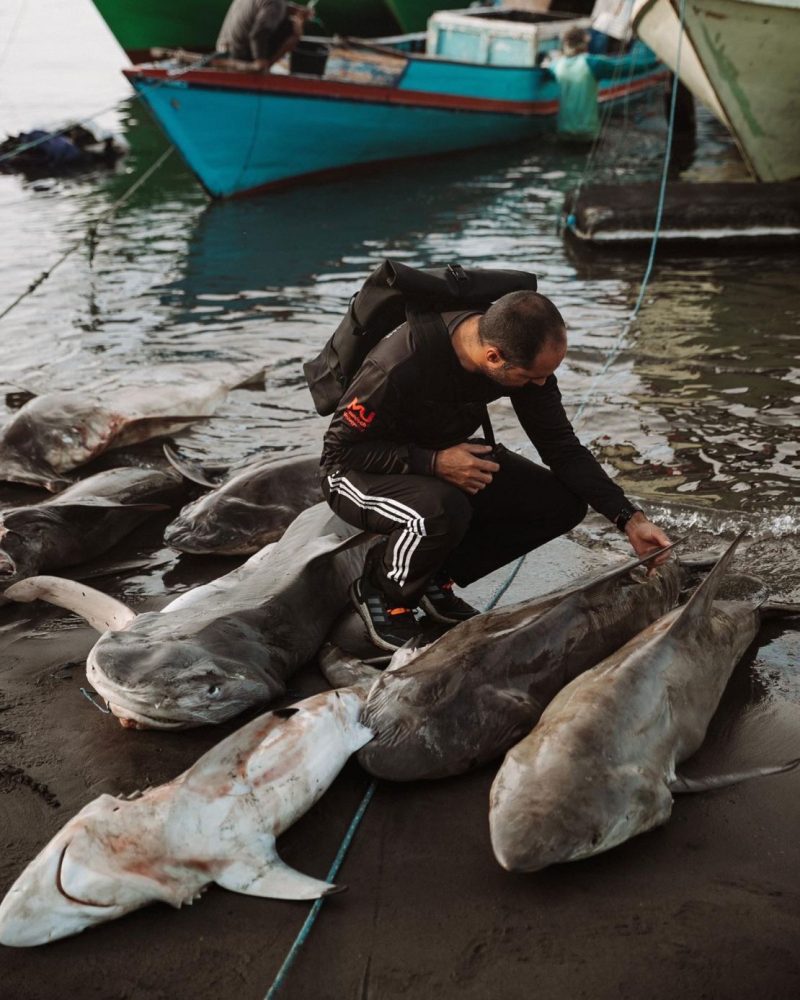The Threat to Shark Populations
The underwater world, an area about 70% of our Earth’s surface, comprises an intricate web of diverse marine organisms. Among them, the shark—an apex predator and vital component of the marine ecosystem—faces an impending threat. Alarmingly, research reveals that a third of the world’s shark species are on the brink of extinction, with disastrous implications for the marine ecosystem and the biodiversity of our planet.
Sharks have roamed our oceans for over 400 million years, surviving five mass extinction events. Yet, the latest threats from overfishing, habitat destruction, and climate change might be the one that unfortunately breaks their resilience. Uncontrolled, such developments are predisposing about a third of the more than 500 known shark species to rapid population declines.
Unsustainable fishing practices, particularly the brutal act of finning—where sharks have their fins removed while still alive before being cast back in the water—is a major contributor to these declines. This ruthless hunt is fueled by the high demand for shark fins in parts of Asia, where they are used to prepare a delicacy called shark fin soup. Additionally, the uncontrolled destruction of vital coastal habitats, such as coral reefs and mangroves, have left many shark populations without breeding grounds, further exacerbating their decline.
Rise in global temperatures, a direct result of climate change, is affecting sea life, with sharks being no exception. Some shark species rely heavily on certain temperature ranges for their reproduction and survival, meaning a shift in these conditions disrupts their breeding cycles and habitability of their usual areas.
One Man’s Efforts to Save the Sharks
Amid these worrisome statistics, there are glimmers of hope. One man, Stuart Sandin, a marine biologist and ecologist at the Scripps Institution of Oceanography, is forging a path for shark conservation. His innovative work in this sphere serves as a beacon of hope, demonstrating that dedicated research, advocacy, and action can make a significant difference in reversing this devastating trend.
One of Sandin’s initial conservation efforts involves cutting-edge research to identify key hotspots for shark conservation. Utilizing high-resolution technologies, including state-of-the-art satellite imagery, Sandin and his team have been able to identify regions in the ocean where shark populations are most dense, offering direction for more targeted conservation efforts.
Additionally, Sandin champions the implementation of marine protected areas (MPAs) in these regions—well-defined geographical spaces where human activity is managed to protect biodiversity. Evidence proves that sharks prosper in these protected zones, experiencing lesser threats from destructive fishing methods.
Moreover, Sandin understands the power of public awareness and believes in the importance of education in saving shark populations. Through seminars and workshops, he actively promotes understanding of the essential role sharks play in the marine ecosystem. His efforts aim to dispel the myths that portray sharks merely as dangerous predators, highlighting instead the need for their protection.
As part of his holistic approach, Sandin also collaborates with government bodies and non-profit organizations to influence policy changes. Recognizing the need for laws to combat overfishing and other detrimental human practices, Sandin and his team work tirelessly to lobby for more robust protective legislation for sharks. Through his combined scientific and advocacy efforts, Sandin is actively combating the extinction threat to the shark population, demonstrating that this bleak situation is not beyond remediation.
Final Thoughts
The threat of extinction to a third of shark species presents not only an alarming environmental concern but a pivotal point in our battle to preserve the planet and its rich biodiversity. As Stuart Sandin’s work has shown, turning the tide is still within our reach, but it requires collective action and commitment. From scientific research to education and policy changes, each course of action forms a part of the solution, bringing hope for the future of sharks, and by extension, the sustained health of our oceans. The global community, governments, and individuals must learn from such efforts and join forces to ensure these magnificent creatures continue to thrive for generations to come.




